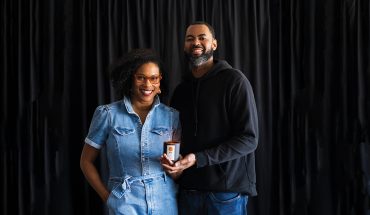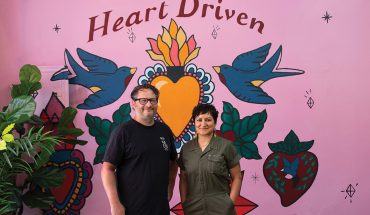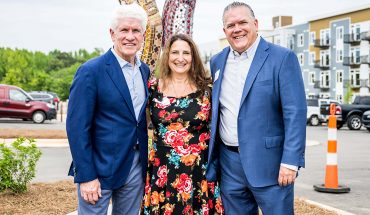Filmmaker and Hayti Heritage Film Festival curator Lana Garland discusses the importance of black film and the effect it has on the community.
by Gabriella Axner
The 26th season of Hayti Heritage Film Festival begins Thursday, February 13 and continues through Saturday, February 15. Located on 804 Fayetteville St. in Durham, the festival began in 1994 has become a yearly event to celebrate and sustain black film. While, the festival emphasizes work from the American South, it also includes film from all the way across the African diaspora. We spoke to curator Lana Garland about this year’s event.
What are the origins of the festival and how did the festival come to be?
No one remembers how it came to be, as none of the folks are still here, but images are important. Hayti is an epicenter of black culture here and it isn’t surprising that they’d want to have a festival. When I was a little girl in the 1970s, I remember that whenever you saw a black person on TV, you’d run to the phone to tell someone—it was so rare. Film is so very important because of the history of African Americans in America. The festival shows films from people and filmmakers of African descent that show our lives and show our stories. It is no surprise that they’d want to start a festival 26 years ago.
How do you choose which films to show?
We take films by submission. People will submit their film and a jury selects the best films from those submitted. The jury rounds out about 60% of the program, then curation steps in. We think that it’s important that we see films from black filmmakers across the diaspora. We try to choose films from people of African descent that have come out in the past two years. This year we have a film by an Afro-Philipino woman who lives in the United Kingdom. It is important to be able to have a conversation about how diverse our culture is and showing different parts of the community to ourselves is a rare thing. It shows different life experiences and it’s important for us to be able to see all those facets of ourselves.
What can one expect at this festival? What will they experience?
We call it the environment of black family reunion. Anyone who walks through the door is our cousin and we treat you as such. There will be both shorts and features, documentaries and fiction. We’ll also have workshops that help filmmakers. There is one that helps you transition a web series to a television show. We have a master class in acting with Obba Babatunde. The Southern Documentary Fund will also be there, so filmmakers will be able to run their idea over with them for 15 minutes. My film, Passing On, is about the dying tradition of African American funeral homes. The film explores why the undertaker role is disappearing. This festival honors our elders but also we also have cutting edge youth oriented programming as well.
What does this festival represent to the community?
When I came to this area, I asked to take it over because festivals are my life. I just saw this vision for not only having a black film festival but more specifically, a black southern film festival. It’s a journey of teaching people why we need to have film festivals. They’ve quickly learned that we are able to see content that otherwise we’d never be able to see. People know they can expect a certain amount of excellence. This is the only festival in America that centers around African American film making. It helps people learn who they are and where they’re going.
What is the response you all get from the community after the festival? How does it impact everyone?
It’s so important that people see people and their communities on screen. Being able to imagine a world where we don’t see it is very important. When we are able to see afro-futuristic films, it changes the boundaries of who or what we can be. When watching Passing On, the audience has the ability to choose and make a decision whether it’s okay for the disappearance of these funeral homes to happen or not. The films can change the way you think about your community and the world.
For more information, visit haytifilmfest.org.





